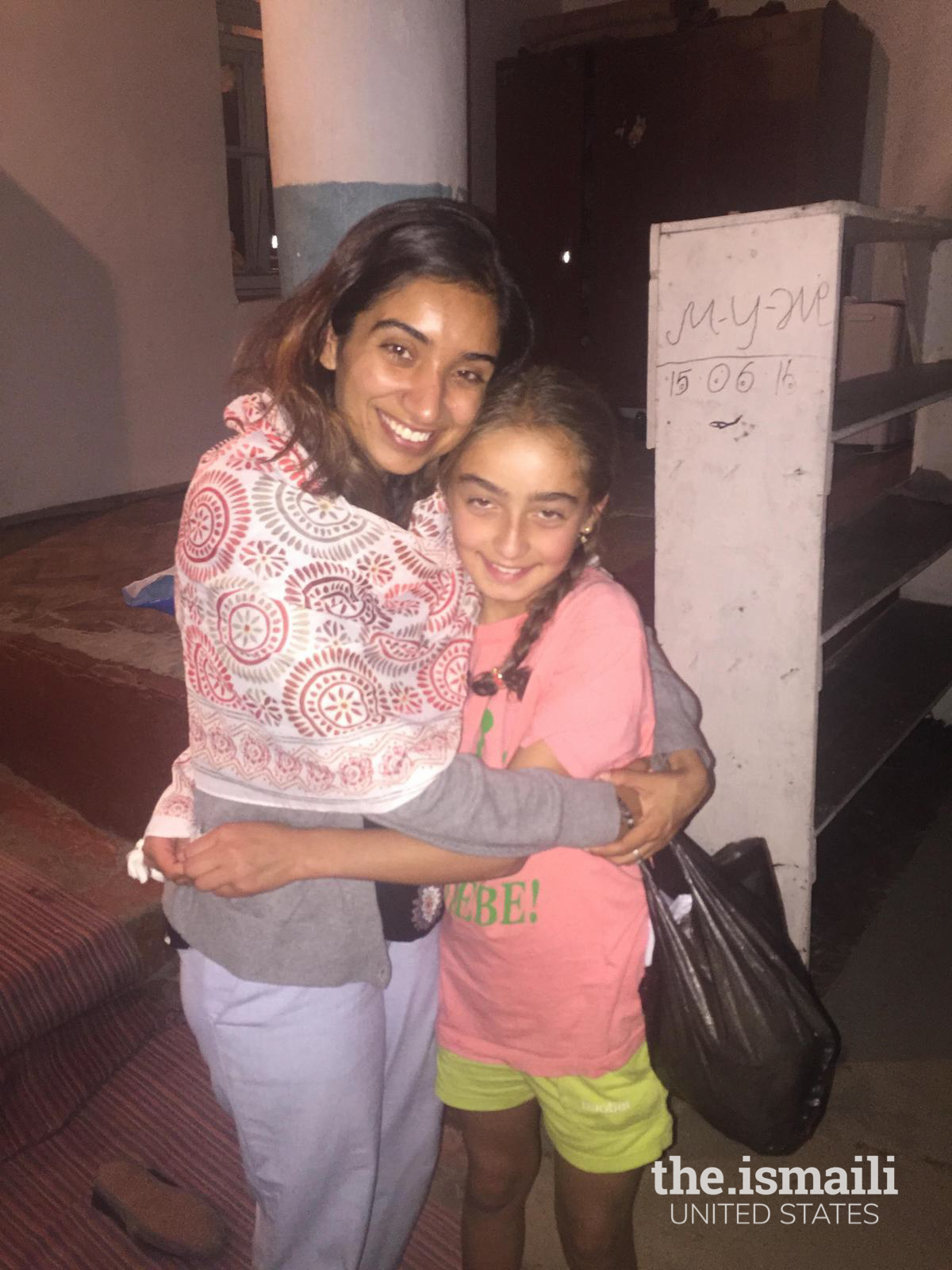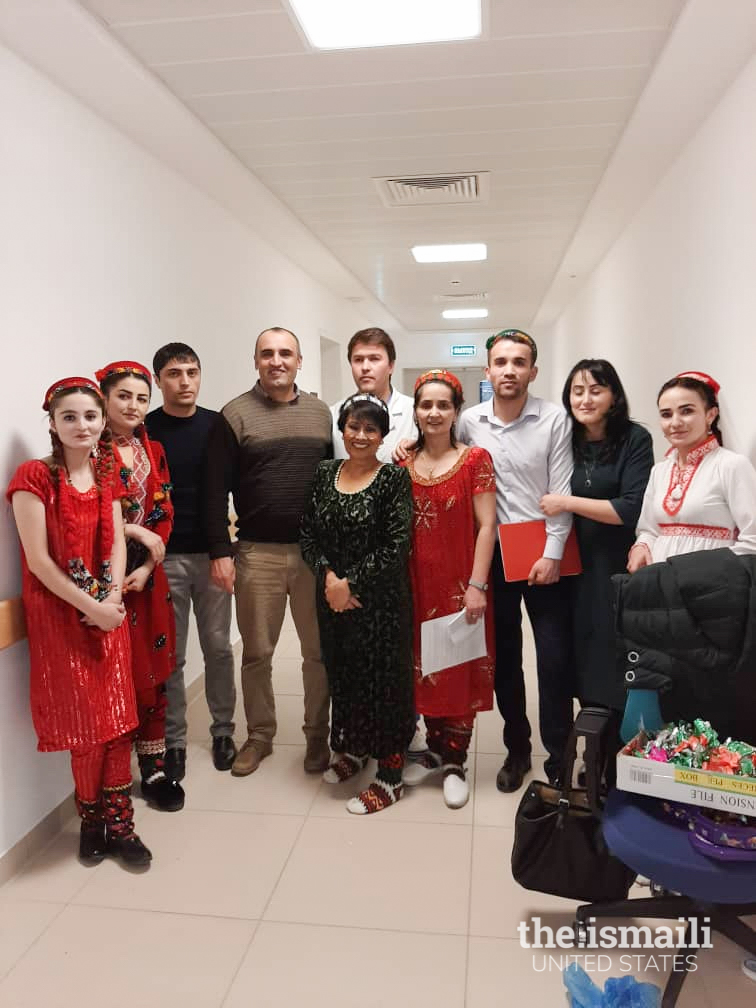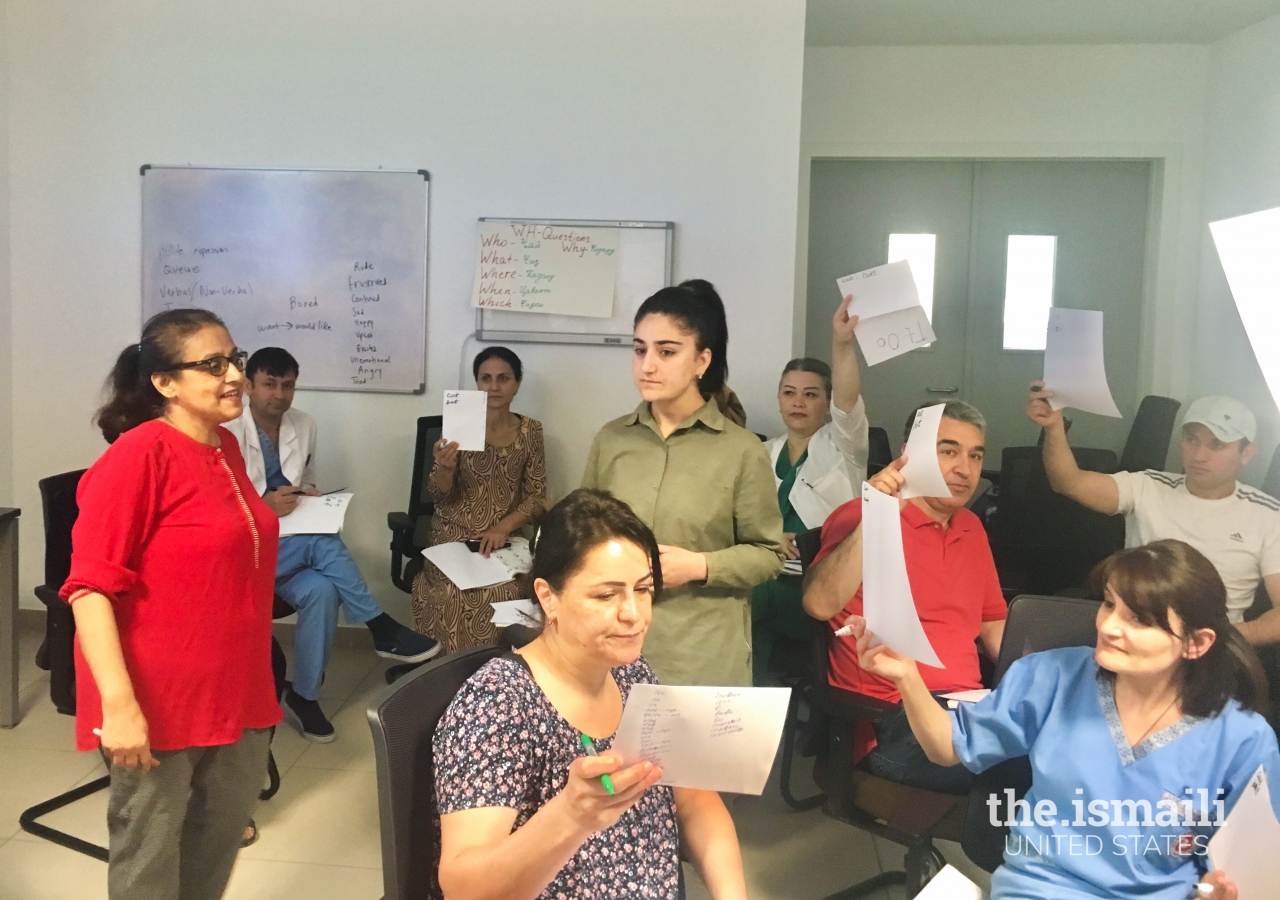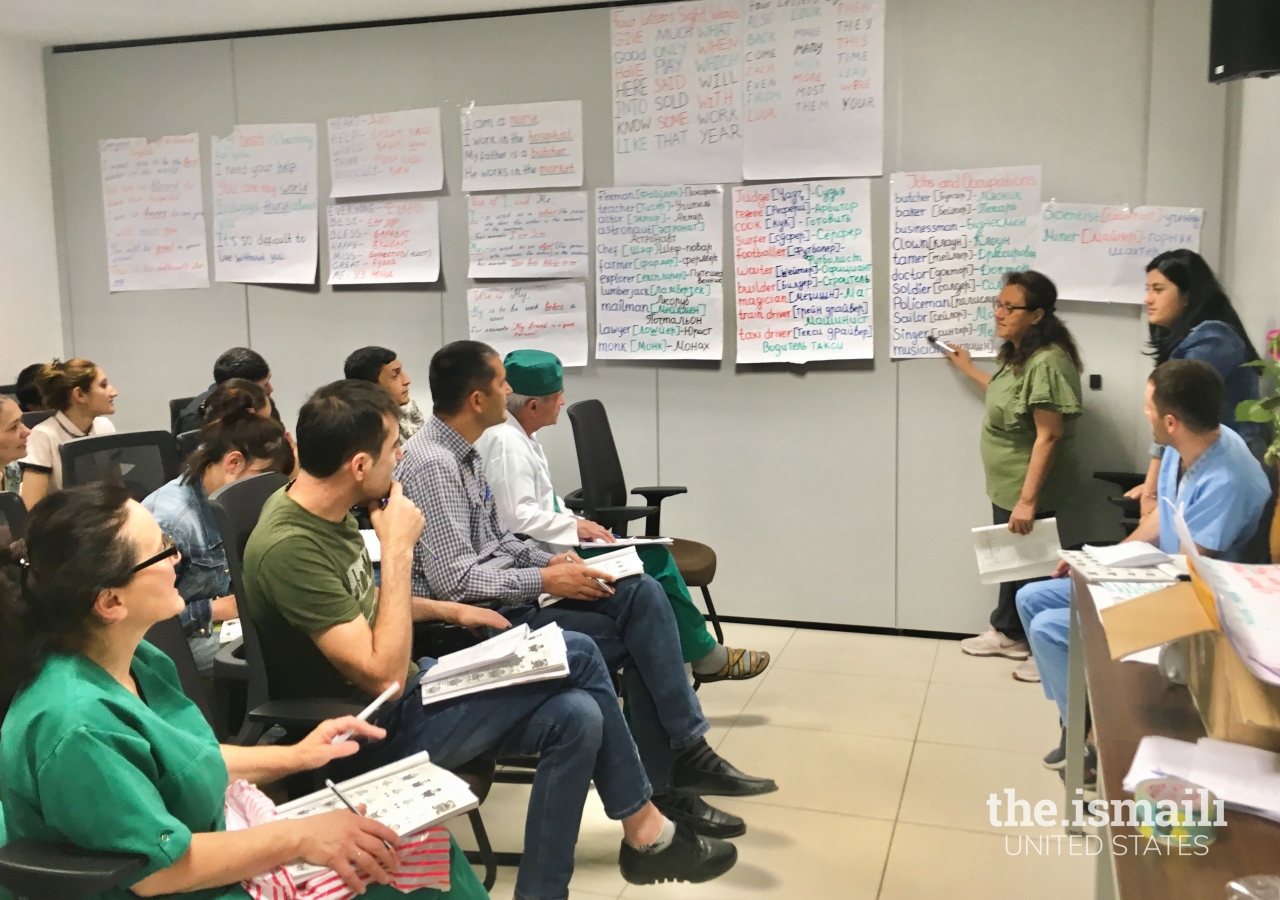A rugged 14-hour drive to Khorog and grueling 12-hour days would tire anyone, but not TKN volunteers Yasmin Walji, Alisha Bhimani, and Shirin Nanjee. They were on a mission to ensure that clinicians from the Pamir region of Tajikistan can be familiar with the most relevant and recent literature in their profession, in order to provide the best care possible to their patients. To do this, they needed to be more proficient in the primary language of medical journals—English.
“The Pamir region is increasingly becoming a popular destination for European hikers, many of whom rely on services from the Aga Khan Medical Centrre, Khorog (AKMCK),” explained Yasmin, a nurse and midwife with a postgraduate degree in newborn intensive care, and a certification in ESL training. “We were not only training clinicians to be able to converse with their patients, but even worked with kitchen staff to be able to provide quality services,” she said. All of these aspects work collectively toward creating a quality experience at AKMCK. This was Yasmin’s sixth TKN assignment, having completed similar projects in Badakhshan and Kabul, Afghanistan.
Alisha 12.49.35

“There’s no set curriculum that encompasses English language and medical terminology,” said Alisha Bhimani, who is completing a Doctorate in Nursing Practice (DNP) at Emory University. “We’re working without a playbook, and thanks to the TKN program, we’re able to provide a solution to an immediate need in the Jamat.” Alisha was a Master Trainer for the English language in the Quality of Life program of the Jamati Institutions, before serving her TKN assignment.
Alisha first became familiar with the English language curriculum through QOL’s Life Skills program. The original program—designed for about 10 months in 2015—had been changed during the Diamond Jubilee year to a two-month option, called “60 Days of Learning.” As part of the same initiative, Alisha also created a separate medical terminology curriculum—designed to be implemented simultaneously with the ESL curriculum—that helped to further customize the learning experience for the AKMCK medical staff.
Yasmin 12.38.47

Yasmin further customized the curriculum by using a content-based ESL instruction approach, which allows students to learn vocabulary in the context of their environment. For example, receptionists answering the phones, or kitchen staff taking food orders would learn English differently than clinicians. “This context and content-rich approach help meet specific needs and instill more critical thinking and global skills, moving beyond the functional English,” explained Yasmin.
The women’s task was not easy, but every student was a motivated learner. For Shirin Nanjee, a high school teacher from Houston, with a 15-year-long teaching career, the warmth of her students and patrons was her fuel. “I was overwhelmed with the love, humility, and graciousness of everyone there,” she said. She engaged the local community and had two Ismaili students from Tajik universities—an ECD-trained mother, and an MBA graduate – help her manage her schedule and help prepare for classes. “Teaching a language and set of skills that provide so many immediate socio-economic opportunities as a TKN volunteer, was the height of my professional career,” remarked Shirin, and “It paid off to be a teacher!”
There are also projects on the side. For example, inspired by the AKMCK community, and driven by the need for resources in the region, Shirin designed and launched pre-professional and supplemental learning programs. She established a mobile library for young children selling apricots on the street, allowing them to access literature and improve reading skills. “If children are given access to educational resources, they are willing to self learn and further their own learning,” she said. She also established SAT classes for youth, helping improve their chances of gaining higher education, a better life, and an opportunity to bring new ideas and methodology to their own communities.
Similarly, Yasmin was supporting evening classes for young children in the village, who walked into her classroom because there was an English teacher present. “They simply wanted to learn,” she said with a smile, surprised and pleased with the initiative and motivation of these young children seeking knowledge at every opportunity.
While Shirin and Alisha were there together for six to eight weeks, Yasmin took over after they left to continue the program. After completing their assignment, the women are all back in the US now, but they plan to keep the program running. They are working on a proposal to create a sustainable model to manage the ESL department at AKMCK, providing year-round training at least for the next three years.













